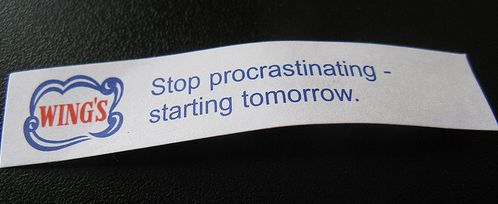
Look away from the screen for a moment. Take a half-minute off from your blog-reading and look at the people and objects around you right at this instant. Get a good feel for the moment’s scenery and emotional tone, and when you’re done, read on.
(Do it now.)
Back?
I have a question for you:
Where are you at this exact moment in your life?
Obviously you’re in front of a computer screen of some kind (maybe a smartphone), so give us a little bit more context than that.
Where are you right now, physically, and how did you get there?
When I ask “how did you get here” I’m not looking for something like, “I rode my bike.” I mean, what circumstances and incentives brought you to this exact place you’re sitting now? What were you looking for that brought you here?
And I don’t mean these as rhetorical questions either. Tell me in the comment section below. Where are you right now, what’s going on, and how do you feel about that? Use a fake name and email address if your current moment involves hiding from bounty hunters or smuggling knockoff Ray-Bans and you’re concerned about privacy.
There are a lot of places you could be. Time and space can serve up a gazillion unique little corners to find oneself in. Maybe you’re riding a creaky city bus, iPhone in hand, on your way to a job you just started Monday. Or you might be first one in the office this morning and the main overhead lights aren’t on yet, because you wanted to tackle something you know you should have done yesterday. Or you could be in your roommate’s room, ready to click the browser closed and pretend you weren’t using his laptop, because you know he gets home from the gym around now.
But you’re right here. Look away from the screen again for a second.
That’s yours, for now. Your lot. This little corner of time you’re in — is it the result of a direct decision on your part, or is it more a product of what you might call “happenstance”? Did you decide to be here or did it sort of settle out this way?
Are you waiting on something? Avoiding something? Excited for something?
What moment have you arrived at, in this, the Greatest Story Ever Told?
And one final follow-up question, if you feel like answering it:
Do you feel like you are where you’re supposed to be?
I know that’s a subjective question and there are a lot of ways to look at it, but it’s definitely answerable.
That’s all I want to know. Please tell me. The reason why will come in the next post.
Photo by striatic



 I'm David, and Raptitude is a blog about getting better at being human -- things we can do to improve our lives today.
I'm David, and Raptitude is a blog about getting better at being human -- things we can do to improve our lives today.
I highly recommend a consistent, daily meditation practice! For years I was interested in meditation, but never did much more than read a lot about it, and think a lot about it... but that doesn't hold a candle to actually sitting and meditating every day. I find it helpful to keep...